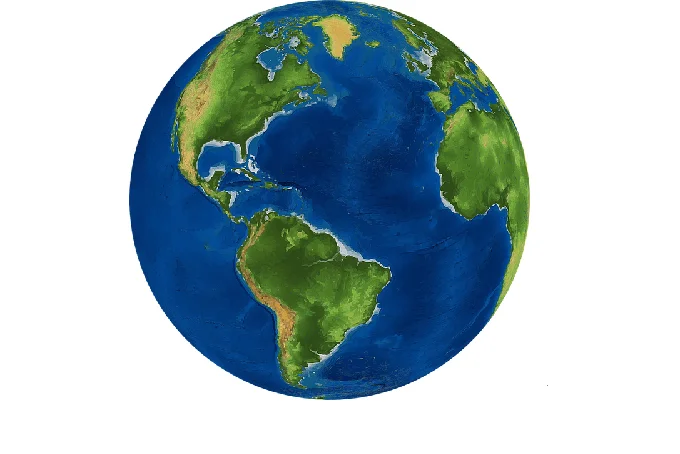8 reasons why humanity is not doing anything to save the planet

“The planet is fine -The people are f*cked,” George Carlin stated, although in a harsher version. And he is correct. People are the ones who kill themselves by ruthlessly destroying the world for the sake of profit. Even if we convert the earth into a nuclear wasteland, it will live. It will heal and grow green again millions of years hence, but no one will remember the presence of humans by then.
So why aren’t we, as humans, doing all we can to rescue the world since it’s in our best interests? This is due to several factors.
We believe it will be done by others
How many times have you walked by someone who has stumbled on the ice, thinking to yourself, “Someone else will assist him, but I’m in a hurry”? When it comes to ecology, the same idea applies. The main difference is that the scenario with the fallen person occurs in real-time, putting pressure on the conscience, but the environmental condition is abstract. We believe that someone else, more capable, will take care of it.
The other reason is that we presume that other people aren’t doing anything to help the environment; thus, it’s pointless to try since no one will care. This is what the majority believes, which leads to the issue being overlooked.
We don’t see this as a concern because of the long horizon and ambiguous timelines
The brain is wired to smooth out the bad to keep the mind from boiling, particularly when the event hasn’t happened yet and is indicated. That is why we continue to damage the biosphere with tranquility despite the possibility of humanity’s annihilation in the not-too-distant future.
We’re just interested in what occurs soon. A good example is smoking. This habit has almost no negative consequences; the most severe consequences are dependency and shortness of breath. However, smoking may lead to cancer and other severe ailments in the future. However, since this is a remote and not necessarily realizable concern, it does not disturb anyone.
The striatum is impeding our progress
The striatum is a brain structure involving reward, instant pleasure, cognition, reward, and motivational relevance. Previously, this organ was required for survival, generating happiness while quickly addressing the most fundamental demands, such as hunger. This organ has not changed with development, and a person’s need to experience pleasure as quickly as feasible still exists.
This is the goal of capitalism: to encourage overconsumption to fulfill urgent necessities. We do not consider the damage that unneeded objects will bring when resources are spent on their creation and disposal; instead, we consume them in the present.
We have a weak comprehension of environmental change concepts
The difficulty with popular science channels that discuss environmental deterioration is that they provide material as if it were intended for scientists. Yes, you can comprehend the concepts of the greenhouse effect, heavy metal toxicity in soil, and other ecosystem-related issues. On the other hand, most people find it impossible to comprehend how the burned-out fuel in their old automobiles’ engines might affect global temperatures.
This falls under the category of complex physics for them. People do not want to learn anything new needlessly since the brain prefers to be lazy. As a result, most people are unconcerned with humanity’s harmful influence on the earth.
Cognitive dissonance is a hindrance
A collision of contradictory concepts in a person’s head causes cognitive dissonance, which is a mental discomfort. When a person experiences dissonance, his mind strives to reconcile contradictory views in any manner possible to minimize stress. Or, in the lack of correspondence, his mind will attempt to disregard the issue.
For example, a person who tosses trash on the ground regularly. His mind rapidly comes up with an explanation: there are no trash cans nearby, finding them would take too long, the rubbish smells too much, and others would believe the scent is coming from a person, and so on. The essential point is that these beliefs disguise an issue that isn’t very pressing in the near term.
Our habits get in the way
We’ve previously established that the brain is a sluggish organ seeking the simplest solutions. Mindfulness is minimized via the development of habits. It is very difficult to break habits, and most individuals prefer to keep things as they are since attempting to modify acts that have become automated causes pain.
We continue to ruthlessly abuse the world, consume much more than we need, and operate in the same way we did hundreds of years ago simply because it’s what we’ve always done.
We are removing ourselves from nature
To be mindful of one’s influence on nature, one must first grasp how it works. However, with the advent of urbanization, many people have forgotten that the food on their shelves, the air they breathe, and the water they drink do not originate from a factory. Because we are cut off from nature, we are forced to disregard environmental issues because we are unconcerned about them.
We adopt a denial attitude
The brain is to a fault once again. It smooths out the difficulties, making them less serious, to decrease the mind’s negative impact. Skepticism is quite beneficial in this regard. It’s helpful in certain situations, but not for environmental difficulties. People’s minds deny their harmful influence on the environment. We can’t think that a cigarette dropped on the ground or a vehicle washed in the lake is driving humanity closer to extinction since these are such small things.
We begin to suppress this knowledge to preserve our psyche when we encounter headlines about humans’ extinction in the future due to a deteriorating environment. Consequently, most people are suspicious of scientific concerns about the planet’s future because they don’t want to be associated with such large-scale catastrophes.




